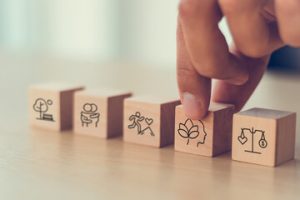The transformation of spaces often begins with clearing. Every structure or pile of debris tells a story of change. Removing what no longer serves its purpose is the first step to progress. This is why rubbish removal and demolition are deeply connected.

Demolition is more than breaking down walls. It is an organized approach to deconstructing what was once functional. Each piece of material that falls opens room for something new to rise. Yet, this process carries a responsibility to handle waste wisely.
Rubbish removal after demolition shapes the sustainability of change. Piles of discarded concrete and timber cannot simply be ignored. Their journey beyond the site impacts the environment. Responsible handling transforms waste into potential resources.
The rise of sustainable practices makes this link vital. Modern projects demand more than destruction. They expect demolition to pair with recycling and reuse. This mindset prevents valuable resources from ending as landfill waste.
Every removal project reflects the culture of responsibility. When rubbish is sorted and repurposed, it speaks of awareness. It shows that progress can coexist with care for the planet. This balance is becoming an essential practice in many industries.
Technology plays an expanding role in rubbish handling. Advanced machinery allows efficient sorting of materials. What was once seen as debris is now processed for reuse. This evolution reshapes the way demolition is understood.
The demolition of buildings now emphasizes selective deconstruction. Instead of leveling everything at once, parts are carefully dismantled. Metals, woods, and concrete are separated with intention. This method ensures a cleaner and more sustainable process.
Rubbish removal has become more systematic over time. Specialized equipment manages bulky waste that manual labor cannot. Materials are compacted, shredded, or transported with precision. This minimizes hazards and accelerates the renewal of spaces.
The connection between demolition and rubbish removal is also economic. Salvaged materials can reenter construction markets. Wood, steel, and stone gain new value when processed properly. This cycle supports industries and reduces overall costs.
Communities benefit when waste is handled correctly. Cleaner surroundings foster healthier living spaces. Reduced pollution means less harm to both people and wildlife. Demolition, when paired with thoughtful removal, becomes a service to society.
Safety remains central to the practice. Removing structures involves risks that demand expertise. Hazardous waste, sharp debris, and unstable walls need skilled management. Rubbish removal ensures these dangers are contained effectively.
Environmental awareness reshapes traditional demolition methods. Projects now assess the impact before a single wall is taken down. Plans are made to reduce dust, noise, and waste overflow. These efforts protect both nature and nearby communities.
Rubbish removal also supports urban renewal. Old structures are taken down to make way for better living spaces. Abandoned buildings are cleared, giving communities fresh beginnings. Each cleared site opens new opportunities for development.
There is also an emotional side to demolition. Removing a building can mean erasing memories. But responsible rubbish removal ensures the process contributes to growth. It allows space for new stories to be written.
The art of demolition has advanced with engineering precision. Explosives, cranes, and robotics now allow safer practices. Yet all the sophistication still ends with waste handling. Without removal, the process remains incomplete.
Recycling centers have become vital partners in rubbish removal. They receive concrete, metals, and plastics for repurposing. This cooperation reduces the need for raw material extraction. It lessens the strain on natural ecosystems.
The circular economy concept influences both practices. Instead of a linear “use and discard” system, resources circulate. Demolition contributes to this cycle by supplying reusable materials. Rubbish removal ensures they are recovered effectively.
Landfill reduction is now a core priority. Demolition waste contributes significantly to global disposal issues. Through sorting and recycling, this burden can be minimized. Proper rubbish removal is key to achieving this.
Innovation also shapes waste-to-energy processes. Certain demolition debris is converted into fuel. What was once seen as useless becomes a source of power. This highlights the unseen potential of careful rubbish removal.
The future of demolition and rubbish removal lies in integration. Both processes must work together from the planning stage. This avoids delays, unnecessary costs, and environmental harm. Coordination builds stronger foundations for development.
Urban expansion makes these practices even more critical. As populations grow, old spaces must give way. Clearing with responsibility ensures cities evolve sustainably. Without proper rubbish management, growth becomes destructive.
Green building standards now influence demolition strategies. To meet environmental goals, waste must be reduced. Demolition plans align with these standards through precise rubbish removal. This keeps construction projects in harmony with sustainability.
Education plays a role in improving awareness. Workers, planners, and communities need to understand proper practices. Knowledge about recycling and safe handling makes a difference. Awareness strengthens both environmental and social outcomes.
There is also innovation in material recovery. Smart machines detect metals and separate them instantly. Concrete is crushed for use in new foundations. This efficiency makes rubbish removal part of construction rather than its opposite.
Demolition sites are now seen as material banks. Every piece has potential value if managed correctly. Rubbish removal is the process that unlocks this hidden worth. It changes how industries view waste.
Challenges remain in handling hazardous materials. Asbestos, chemicals, and old paints cannot be discarded carelessly. Specialized removal ensures safety while respecting environmental laws. This makes rubbish removal a skilled profession.
The human element in this field is equally important. Workers ensure processes remain safe, clean, and efficient. Training empowers them to manage risks and use tools effectively. They are the backbone of responsible demolition and removal.
Technological advances continue to push boundaries. Drone inspections allow safer demolition planning. Automated sorting machines make rubbish removal faster. These changes redefine efficiency in the industry.
Demolition no longer marks an end but a beginning. Rubbish removal ensures that what is broken finds a new role. Progress is measured not only by what is built but also by what is reused. This philosophy drives the industry forward.
Responsible demolition promotes community pride. Clean removal projects show respect for surroundings. They remind residents that change can happen without neglect. This harmony encourages acceptance of development.
The combination of these practices also supports climate goals. By reducing waste and recycling materials, emissions decrease. Energy saved through reuse contributes to larger environmental targets. Rubbish removal and demolition are part of the solution.
Future innovations may even create zero-waste demolitions. Advanced recycling could process every fragment. Waste would no longer exist, only resources in new forms. This vision inspires continuous improvement.
The industry continues to balance tradition and progress. Where once demolition meant dust and chaos, it now means planning and precision. Rubbish removal has evolved from mere disposal to resource management. Together, they define the future of sustainable development.
The importance of these practices is undeniable. They shape landscapes, influence economies, and protect the environment. Each act of demolition paired with careful rubbish removal carries weight. It represents the possibility of renewal and responsibility combined.
In the end, clearing is never about destruction alone. It is about preparing for what comes next. Through mindful rubbish removal and strategic demolition, societies grow. The future is built on the thoughtful handling of what is left behind.





